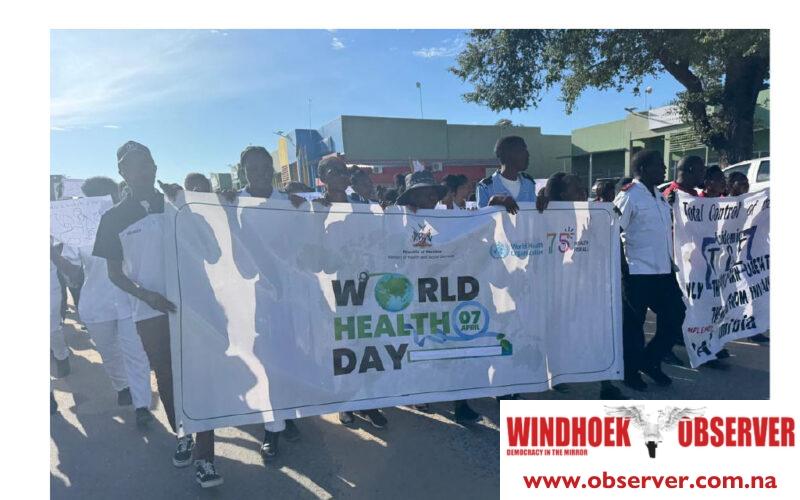Niël Terblanché
At the World Health Day commemoration in Katima Mulilo on Monday, the minister of health and social services, Dr Esperance Luvindao, addressed the pressing issue of maternal mortality in Namibia.
She described many causes of maternal deaths as preventable tragedies that require urgent action.
“Improved antenatal care, skilled birth attendance, exclusive breastfeeding, and better nutrition could further reduce these fatalities,” Luvindao said while stressing the necessity of people taking more time to care for and help each other.
She also expressed concern that only 49% of mothers in Namibia practise exclusive breastfeeding, a factor contributing to child stunting.
The minister called upon community members to work alongside healthcare providers.
“We must be our brothers’ keepers,” she urged.
She reiterated the importance of early detection, education, while stressing that recognising warning signs during pregnancy can prevent complications such as bleeding, hypertensive disorders, and infections.
“When it is identified early, much can be done to prevent these causes of death,” she stated.
The World Health Organisation’s country representative, Dr Richard Banda, commended Namibia’s efforts in reducing maternal mortality rates.
He said that the country has decreased its maternal mortality rate from 400 per 100,000 deliveries to 139.
Banda stressed the ongoing challenges faced by many nations, particularly in the African region, where maternal deaths occur every seven seconds.
He revealed that 2.3 million babies die within their first month of life, and 1.9 million are stillborn annually.
“Behind these numbers are lives lost and shattered families,” he said.
Banda pointed out that 65 countries globally are projected to miss the targets for reducing newborn deaths by 2030.
He attributed these shortcomings to underfunded health systems, infrastructure gaps, health worker shortages, conflicts, emergencies, and climate-related shocks.
Banda called on governments and stakeholders to increase investment in maternal and newborn health, including infrastructure, human resources, and essential medical supplies.
“Building health systems that can deliver high-quality, accessible, and equitable care to all women and newborns is imperative,” he said.
This year’s World Health Day, held under the theme “Healthy Beginnings, Hopeful Futures,” served as a platform to acknowledge Namibia’s progress and to address the ongoing challenges in maternal and child health.
Banda stressed the collective responsibility of communities and healthcare systems in safeguarding the well-being of mothers and children, advocating for continued collaboration and investment in health services.




